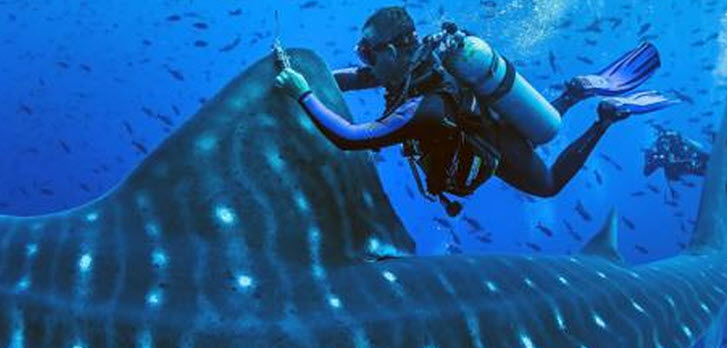09/10/2021: Ecuador wants to create a new Galapagos marine reserve

The Ecuadorian government is considering the creation of a new marine reserve near the Galapagos Islands to protect migratory turtle, whale and shark species that are threatened by industrial fishing and climate change. A huge Chinese fishing fleet operating near the Galapagos Islands attracted worldwide attention last year over concerns over the potential impact on marine fauna and flora in the remote islands, which British scientist Charles Darwin became his Evolution theory inspired. Ecuador has few options to prevent Chinese fleets from fishing on the edge of its waters, but it can restrict the activities of its own commercial fishing industry, said Environment Minister Gustavo Manrique. "This plan, if implemented, would have social, economic and environmental implications," said Manrique in an interview. He admitted that the idea met resistance from industry associations. “As far as the environment is concerned, there is no question that a larger area offers more protection. There are other points that are up for discussion ”.
The proposal would triple the size of the existing 133,000 square kilometer reserve, one of the largest in the world, and help reduce the likelihood of migratory species becoming entangled in the nets of the Ecuadorian fishing fleet. This would help protect a wide variety of marine animals, including five endangered species that migrate between the Galapagos Islands and Costa Rica's Cocos Island in the Pacific Ocean. The proposed plan comes at a time when the United Nations Convention on Biological Diversity is preparing for a summit to protect nature in October, which will also discuss proposals such as protecting at least a third of the earth within a decade .
Climate change also threatens to lower the reproduction rates of marine animals and alter their migration patterns, according to a document outlining the proposal to enlarge the protected area. Ecuador's industrial fishing fleet gets almost a third of its catch from the waters around the Galapagos Islands. And fisheries provide nearly a third of Ecuador's non-oil exports, which the central bank says will total more than $ 1.5 billion in 2020. "We agree that the Galapagos is a human treasure that needs to be looked after, but we do not share the technical principles of the new protected area," emphasized Bruno Leone from the Ecuadorian National Chamber of Fisheries. (Source: www.latina-press.com)
